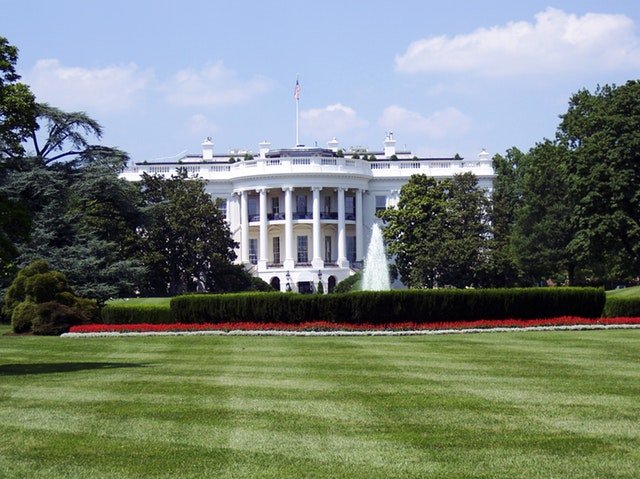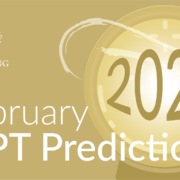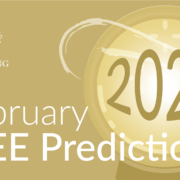I Failed the Washington D.C. Bar Exam. What Should I Do?
I Failed the Washington D.C. Bar Exam. What Should I Do?
A Step-by-Step Guide on What to Do if you Failed the Washington D.C. Bar Exam: On the whole, as more examinees sign up for the Washington D.C. Bar Exam, the percentage of examinees that pass gets lower. If you failed the Washington D.C. bar exam, you are certainly not alone. You also may be wondering what to do next. Having a plan for the upcoming DC exam can be an immense source of comfort.
Update: If you failed the Washington D.C. Bar Exam, check out our excellent and free guide on what to do if you failed the Uniform Bar Exam.
I Failed the Washington D.C. Bar Exam. What Should I Do?
A 5-Step Plan on What to Do if you Failed the Washington D.C. Bar Exam
Step 1: Take a few days or a week to accept the news.
If you failed the Washington D.C. bar exam, the first step is to take the time necessary to accept the news while you wait for your score report. Allow yourself to feel whatever emotions you need to. It will take some time to get past the news and to move on. You may also find that whether you have failed the bar exam once or more than once, it does not get any easier.
As you go through this process, we also recommend you read this note to those who failed the bar exam and this list of famous people who failed the bar exam so you know you are not alone! Lastly, you may want to read over some quotes we recommend for those who failed the bar exam. Sometimes this step takes a day. Sometimes it takes a week or a little longer. If you find yourself in a deep depression or sadness after too long, it is worth it to seek professional help.
Step 2: Closely analyze your Washington D.C. score report.
The minimum passing scaled score on the Washington D.C. bar exam is 266. So, it may be a relief to know that if you scored above a 260 your score is actually considered passing in many states.
Washington D.C. is a Uniform Bar Exam (UBE) state. The breakdown of your score is as follows:
- the Multistate Bar Exam (MBE) is worth 50%,
- the Multistate Essay Exam (MEE) is worth 30% and
- the Multistate Performance Test (MPT) is worth 20%.
To see what your score report means, check out this post called “What does my Uniform Bar Exam Score Report mean?” When looking at your score report, analyze what area you fell short on—the MBE, the MEE, the MPTs, or some combination of them. This will help you decide where you need to change your study strategy.
Note that, technically, a “passing” score on the MBE can be found here, and a passing score on the written portion is 133 (to make up the 266 that Washington D.C. requires, also confirmed on their website). Hence, the farther you are away from 133 on the MBE or written section, the more you need to work on that section.
The D.C. rule for a passing score (also here) states: “If an MBE component score from a prior administration is accepted by the Committee under (c)(8)(B) above, the applicant must attain a scaled score of 133 or higher on the written component in the current administration to pass the examination. If a written component score from a prior administration is accepted by the Committee under (c)(8)(C) above, the applicant must attain a scaled score of 133 or higher on the MBE component in the current administration to pass the examination.”
Rule (c)(8)(B) states: “(B) An applicant may request the Committee to accept an MBE score from a prior examination administration provided that: (i) The prior MBE scaled score is not less than 133; and (ii) The prior administration was within 25 months of the present administration.”
Rule (c)(8)(C) states: “(C) An applicant may request the Committee to accept a written component score from a prior examination administration in the District of Columbia provided that: (i) The prior written component scaled score is not less than 133; and (ii) The prior administration was within 25 months of the present administration.”
So, if you retained a score of 133 on the MBE or essay portion, you can ask the D.C. Bar if they will allow you to only take the portion of the exam that you failed. You will have to receive a 133 or above on that portion. (This option is available for 25 months after passing a portion of the exam.)
Also, note that many students just assume that it was, say, their MBE score that resulted in them failing. However, many times, upon closer examination, it was their essay score! So don’t just gloss over this score report—study it so you can change your approach moving forward.
Also, analyze how far you are from passing overall. If you failed by 5 points, for example, you should still make sure you change your approach and study well for the next bar exam. (We have seen students fail by 5 points or less literally five or six bar exams in a row – and they could have easily passed the second time and gotten their license a few years earlier had they taken it super seriously!) If you failed by, say, 30, 40, 50, 60+ points, you will likely need to totally revamp your approach in order to have successful results on the next bar exam.
Note: Washington D.C. currently only allows you to take the bar exam four times before having to show “extraordinary circumstances” to take it again. Therefore, if you have taken the bar exam close to four times, we highly recommend you change your approach as it is a high-stakes exam if you fail.
Note: If you have trouble with this step or want a second opinion, feel free to contact us and we are happy to help you decipher what your score report means.
PLEASE MAKE SURE TO ALWAYS CONTACT THE D.C. BOARD FOR THE LATEST BAR EXAM INFORMATION.
Step 3: Make sure to carefully review your essays and MPTs from the Washington D.C. state bar.
Washington D.C. will let you review the written portion of the exam at a time set by the state if you did not achieve a score of 266 on the exam. While nobody enjoys rereading what they wrote on exam day, it is a necessary step. You can gain a lot of invaluable information – maybe your organization was lacking. Or maybe you missed issues. Or maybe your legal statements were inaccurate.
So make sure you request your essays in accordance with Washington D.C.’s policy. (This request must generally be made within 30 days after results are released.)
Step 4: Look at how you prepared for the Washington D.C. bar exam.
Now that you have analyzed your Washington D.C. score report and how you performed on the actual essays in Steps 2 and 3, it is time to look at how you spent the days leading up to the bar exam. Specifically, analyze exactly how you prepared. So, what did you do well? What did you need to work on? Are there areas of law you still do not understand? Did you spend enough time studying or did you also have other obligations? Were you able to take enough practice MPTs, MEEs, and MBEs? Were you using released questions or did you use questions a course made up? Was your study schedule helpful? How many timed exams did you take? Did you memorize the law to the extent you needed to?
So remember to be very honest with yourself! A few hours of truly analyzing your preparation can make a huge difference in how you prepare for (and if you pass) the next Washington D.C. bar exam.
Step 5: Figure out your plan for the upcoming Washington D.C. bar exam.
In Step 2, you looked at your score report for the Washington D.C. bar exam. In Step 3, you analyzed your essays, and how you performed on exam day. Step 4 had you look carefully at your preparation leading up to the Washington D.C. Bar Exam.
So, now you should have an idea of where you fell short both in terms of the section(s) you fell short on (MBE, MEE, MPT) and in terms of your personal preparation (maybe your outlines did not prepare you well enough, perhaps your bar review course did not fit your study style, perhaps you did not get feedback on enough of your essays, etc.). Now it is time to figure out what you can do leading up to the next exam to change your exam score to a passing one! Hopefully, you have identified some areas you fell short on and need to work on.
Note: We do not recommend you do the same thing twice if you want a different result. And we truly do not recommend you take your commercial course again and you can read more about that here . . .) You need to do something different if you want a different (and passing) result on the next bar exam you take.
In conclusion, consider using a different approach for the next exam. Here are some additional resources worth checking out. We have listed them in order of what you may need help with if you failed the Washington D.C. bar exam. Our resources are extremely high quality and tailored to what is tested!
Looking to Pass the Bar Exam?
Free Resources:
- 🌟Bar Exam Free Resource Center: Access our most popular free guides, webinars, and resources to set you on the path to success.
- Free Bar Exam Guides: Expert advice on the MBE, the MEE, passing strategies, and overcoming failure.
- Free Webinars: Get insight from top bar exam experts to ace your preparation.
Paid Resources:
- 🏆One-Sheets: Our most popular product! Master the Bar Exam with these five-star rated essentials.
- Bar Exam Outlines: Our comprehensive and condensed bar exam outlines present key information in an organized, easy-to-digest layout.
- Exclusive Mastery Classes: Dive deep into highly tested areas of the MBE, MEE, MPT, and CA bar exams in these live, one-time events.
- Specialized Private Tutoring: With years of experience under our belt, our experts provide personalized guidance to ensure you excel.
- Bar Exam Courses: On Demand and Premium options tailored to your needs.
- Bar Exam Crash Course + Mini Outlines: A great review of the topics you need to know!
🔥 NEW! Check out our Repeat Taker Bar Exam Course and our new premier Guarantee Pass Program!





